Reviewing two draft laws to avoid duplication
On the morning of November 24, explaining the reception of comments from National Assembly deputies at the discussion session on the Draft Law on Roads, Minister of Transport Nguyen Van Thang affirmed that the Ministry of Transport would seriously receive valid comments to revise and complete the draft law.
Regarding the general issue, Minister Nguyen Van Thang said that some delegates suggested that the two drafting agencies continue to research and more clearly define the content and scope of the draft law, each specific content to regulate each draft law appropriately, limit overlap, and facilitate law enforcement.
“The Ministry of Transport will closely coordinate with the Ministry of Public Security to review and revise the draft Law on Roads and the Law on Road Traffic Safety and Order to ensure consistency and convenience in law enforcement,” said the Minister.
Regarding the issue of word interpretation, Mr. Thang said that many delegates suggested reviewing and transferring the content of word interpretation in specific provisions in Article 3 to regulate word interpretation in a focused, comprehensive, unified and easy-to-study and apply manner.
“ The Ministry of Transport has reviewed the regulations on the interpretation of terms in the direction that the terms specified in Article 3 are terms that are repeated many times in the draft law. Terms that are only used in specific provisions will be included in that specific provision to facilitate the application process,” Mr. Thang said, adding that the Ministry of Transport will continue to study and absorb this content.
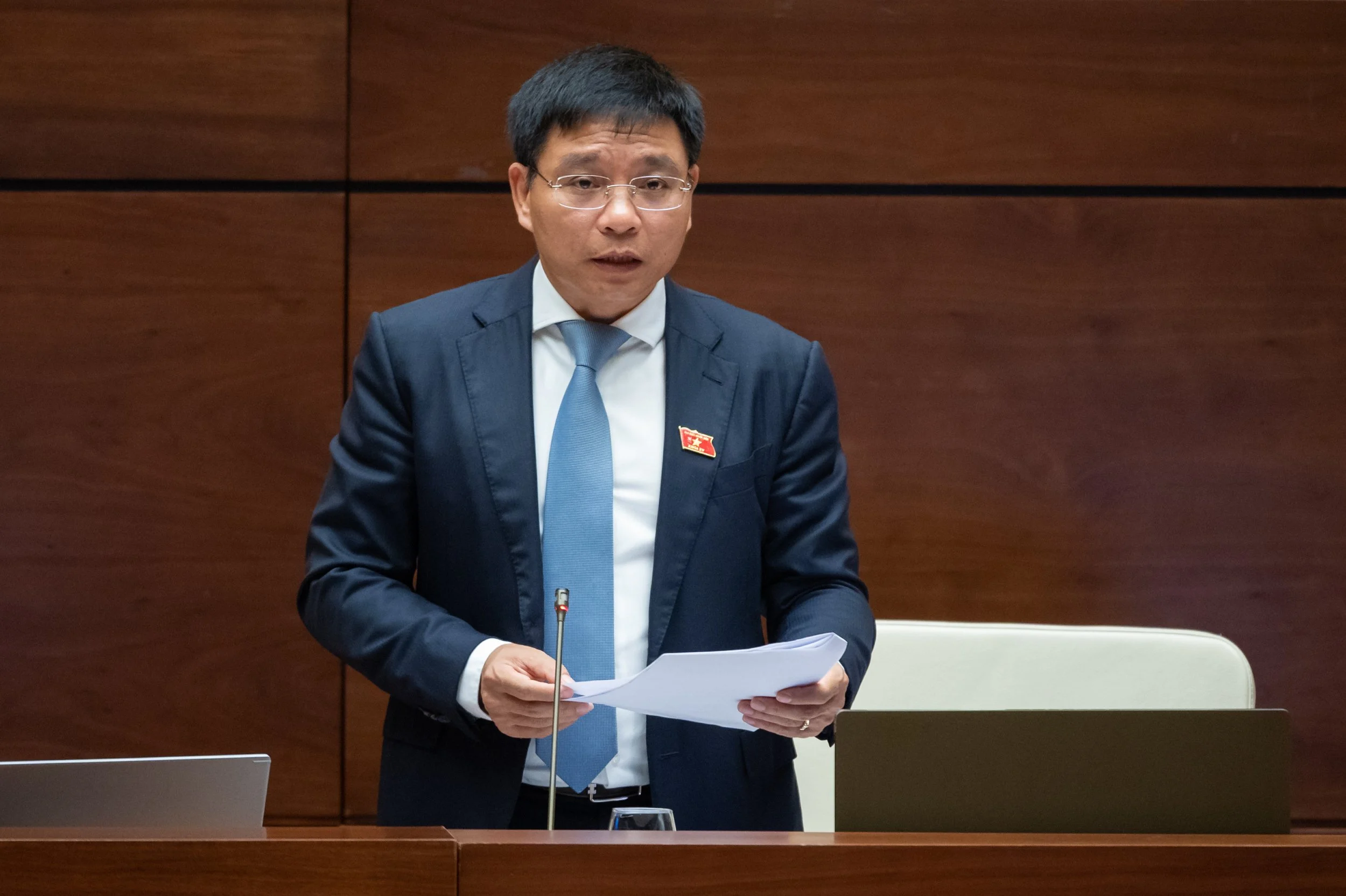
Minister of Transport Nguyen Van Thang (Photo: Quochoi.vn).
Regarding the name of the Law, in response to many different opinions from National Assembly delegates, Minister Nguyen Van Thang clarified: "When discussing this content, the Government had a very thorough meeting and issued a Government resolution on the name of the Law. In addition, the National Assembly also discussed and issued Resolution 89 on this issue.
In addition, we currently have another law that is quite similar to the Railway Law and is being applied stably. Although it is the Railway Law, it covers all railway activities comprehensively.
According to Minister Thang, with the Road Law, one very important thing is the scope of regulation. Therefore, he suggested that delegates continue to contribute comments, but the drafting committee proposed to keep the name as in the draft.
Better roads cost more
Regarding financial resources for investment, construction and maintenance of infrastructure, some delegates requested clarification on the necessity of adding highway tolls in addition to road usage fees already collected through vehicle heads.
Minister Nguyen Van Thang said that, implementing the National Assembly's policy in the resolution approving investment in highways, the Ministry of Transport has researched the toll collection plan on highways invested by the State, assessed the impact...
“Routes invested by the State all have parallel national highways, allowing people to choose. People participating in traffic on the highway enjoy more benefits such as saving on fuel costs and vehicle depreciation,” Mr. Thang said.
The Minister of Transport said that the current form of road toll collection does not separate regular road users and expressway users. To match the fee level and service quality, based on the principle that users of higher quality services must pay higher costs, and users have the right to choose parallel routes, the draft law has added this provision.
"The collection level will be guaranteed to be suitable for the operating conditions of each area, suitable for service quality, ensuring the State's capital recovery for reinvestment in infrastructure, and ensuring annual maintenance costs," said Mr. Thang.
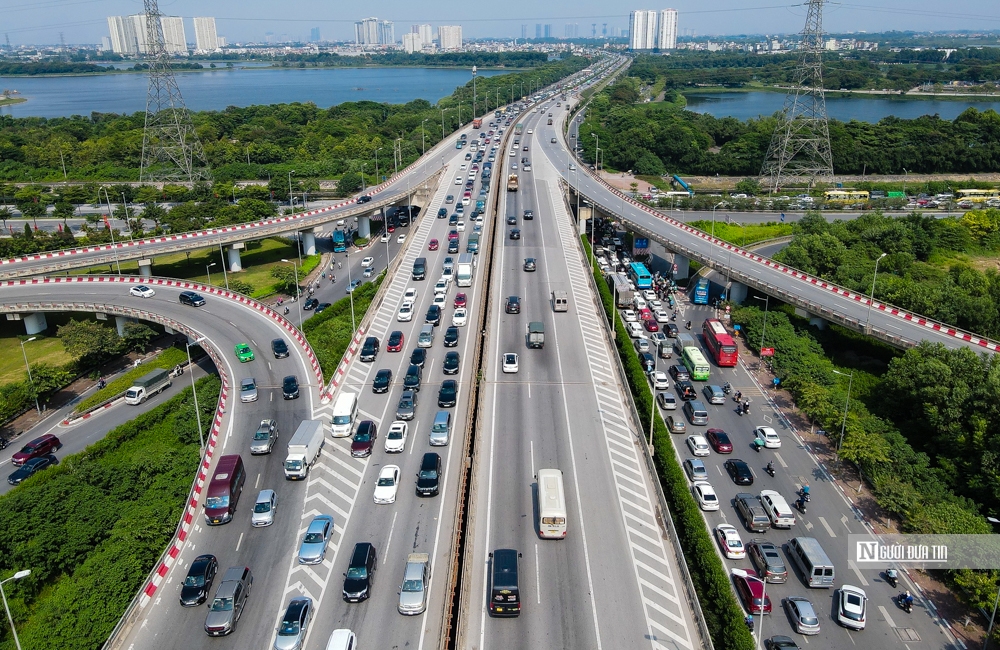
The Minister of Transport said that the current form of road toll collection does not separate regular road users and expressway users (Photo: Huu Thang).
Minister Nguyen Van Thang said that some countries have applied the collection of tolls on state-run highways and we should also calculate to ensure the balance of interests between the people and the State, especially in the context of limited budget.
"Currently, toll collection only meets 35-45% of maintenance needs. If the expressway system is put into use without toll collection, there will be a huge lack of funds for maintenance," said Mr. Thang.
Regarding general regulations for highways, the Minister of Transport said there were opinions suggesting that there should be additional regulations that when investing in the construction of roads and highways, they must be synchronous; Investment can be divided into phases, but after the investment in a section is completed, that section must be synchronous, meeting standards and regulations.
Explaining this content, Minister Nguyen Van Thang said that there are regulations in Clause 2, Article 50 and Clause 4, Article 50 of the draft Law. Specific requirements for investment-phased expressways will be studied by the Ministry of Transport and stipulated in the National Standards on Expressway Design for implementation.
According to him, in the previous question-and-answer session, the National Assembly Chairman concluded on this issue and the Government assigned the Ministry of Transport to issue highway design standards in the first quarter of 2024.
Regarding investment in highway construction and development, there are opinions suggesting to consider the regulation on compensation and resettlement support to be implemented according to the scale and planning in Clause 4, Article 50. The Minister of Transport said that from the practice of investing in transport infrastructure, site clearance is always a very complicated matter, which is the cause of complaints, slow progress, and increased investment capital.
In addition, compensation policies and prices are always adjusted. If the land is only cleared on a phased scale, it will be difficult for the locality to manage the remaining uncleared area. Furthermore, implementing additional land clearance when expanding the planning is very complicated; the cost will be much larger than clearing the land at once.
In addition, for expressways, it is necessary to invest in a system of service roads and side roads; Service roads must be built outside the land area reserved for expressways, so it is impossible to manage the land area located between service roads and expressways.
Learning from practical difficulties, in the Resolution on investment policy for a number of highways, the National Assembly stipulated that site clearance must be carried out once according to the plan.
“Thus, implementing site clearance according to planning is both a policy to develop expressways (only applicable to expressway projects), and a policy that has been implemented and learned from past experiences,” the Minister emphasized .
Source





![[Photo] General Secretary To Lam attends the 8th Congress of the Central Public Security Party Committee](https://vphoto.vietnam.vn/thumb/1200x675/vietnam/resource/IMAGE/2025/10/4/79fadf490f674dc483794f2d955f6045)
![[Photo] Bustling Mid-Autumn Festival at the Museum of Ethnology](https://vphoto.vietnam.vn/thumb/1200x675/vietnam/resource/IMAGE/2025/10/4/da8d5927734d4ca58e3eced14bc435a3)
![[Photo] Solemn opening of the 8th Congress of the Central Public Security Party Committee, term 2025-2030](https://vphoto.vietnam.vn/thumb/1200x675/vietnam/resource/IMAGE/2025/10/4/f3b00fb779f44979809441a4dac5c7df)


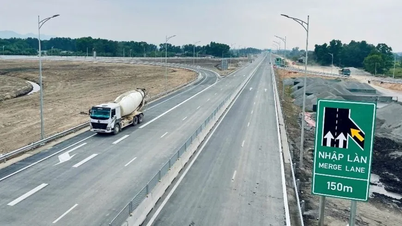

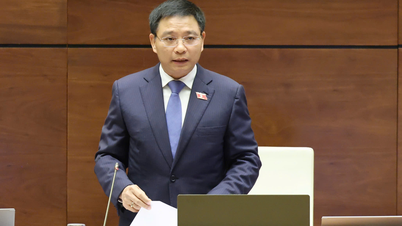




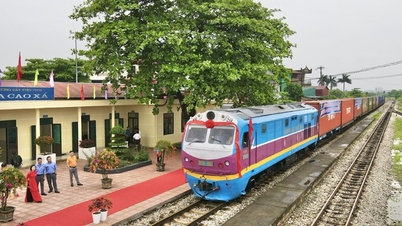















































![[VIDEO] Summary of Petrovietnam's 50th Anniversary Ceremony](https://vphoto.vietnam.vn/thumb/402x226/vietnam/resource/IMAGE/2025/10/4/abe133bdb8114793a16d4fe3e5bd0f12)
![[VIDEO] GENERAL SECRETARY TO LAM AWARDS PETROVIETNAM 8 GOLDEN WORDS: "PIONEER - EXCELLENT - SUSTAINABLE - GLOBAL"](https://vphoto.vietnam.vn/thumb/402x226/vietnam/resource/IMAGE/2025/7/23/c2fdb48863e846cfa9fb8e6ea9cf44e7)































Comment (0)